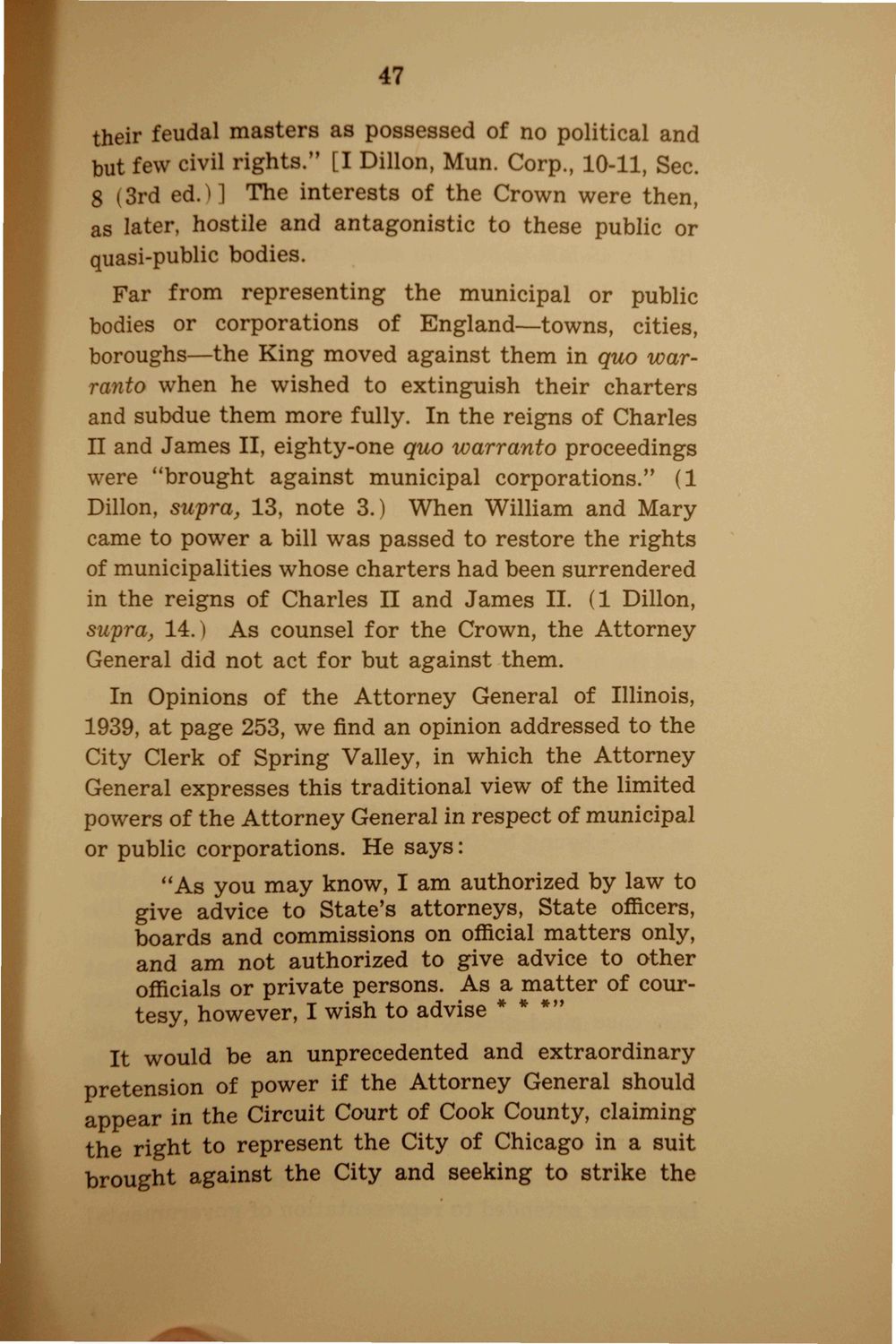| |
| |
Caption: Booklet - UI Charter of Freedom (1942)
This is a reduced-resolution page image for fast online browsing.

EXTRACTED TEXT FROM PAGE:
47 masters Mun 8 (3rd e d J ] The interests of the Crown were then, as later, hostile and antagonistic to these public or quasi-public bodies. Far from representing the municipal or public bodies or corporations of England—towns, cities, boroughs—the King moved against them in quo warranto when he wished to extinguish their charters and subdue them more fully. In the reigns of Charles II and James II, eighty-one quo warranto proceedings were "brought against municipal corporations." (1 Dillon, supra, 13, note 3.) When William and Mary came to power a bill was passed to restore the rights of municipalities whose charters had been surrendered in the reigns of Charles II and James II. (1 Dillon, supra, 14.) As counsel for the Crown, the Attorney General did not act for but against them. In Opinions of the Attorney General of Illinois, 1939, at page 253, we find an opinion addressed to the City Clerk of Spring Valley, in which the Attorney General expresses this traditional view of the limited powers of the Attorney General in respect of municipal or public corporations. He says: "As you may know, I am authorized by law to give advice to State's attorneys, State officers, commissions am officials or private persons. As a matter of cour tesy, however, I wish to advise * * # > > It would be an unprecedented and extraordinary pretension of power if the Attorney General should appear in the Circuit Court of Cook County, claiming the right to represent the City of Chicago in a suit brought against the City and seeking to strike the
| |